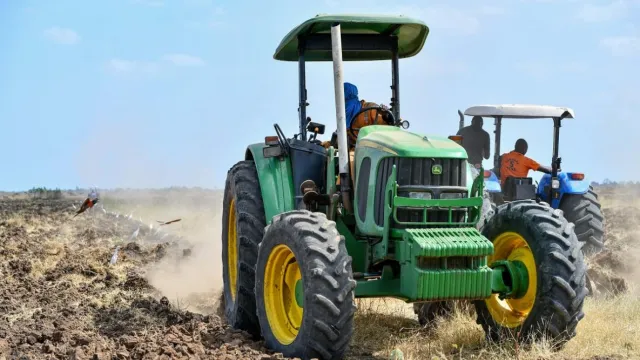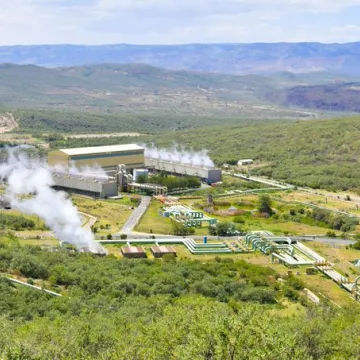Tana River to champion large-scale rice farming in new agri push

At peak production, Agri All Africa expects to produce more than 20,000 tonnes of rice annually, with yields of about three tonnes per acre.
Equity Bank Kenya has partnered with South Africa’s Agri All Africa to enhance food security through large-scale rice cultivation in Tana River. This initiative aims to reduce Kenya’s rice deficit and strengthen local agricultural value chains.
“We partnered with the Kenyan government through the Tana and Athi Rivers Development Authority (TARDA) in a Public-Private Partnership to unlock the region’s vast agricultural potential. This effort will help bridge the country’s rice deficit, which is currently met through imports,” stated Priscillah Dimakhatso, Co-founder of Boholo Group and Director at Agri All Africa.
She officiated the project’s launch at a function graced by President William Ruto.
While acknowledging Equity Bank Kenya’s role in providing strategic support, Dimakhatso stated, "We engaged Equity not just as a financial institution but as a partner with a deep understanding of agribusiness ecosystems and community empowerment through the Equity Group Foundation."
Despite early setbacks, including the devastating 2023 El Niño, the project has demonstrated resilience. "We lost significant acreage, but over 370 acres survived. That was a valuable lesson," Dimakhatso reflected.
"We studied what made that crop resilient and came back stronger with a second crop, determined to contribute towards reducing Kenya’s reliance on rice imports."
Currently, 1,300 acres are under cultivation, with plans to expand to over 4,000 acres within the year. At peak production, Agri All Africa expects to produce more than 20,000 tonnes of rice annually, with yields of about three tonnes per acre.
Kenya imports approximately 1.2 million tonnes of rice annually while producing only 200,000 to 250,000 tonnes locally, a gap that strains foreign exchange, labor markets, and contributes to rural-urban migration. Agri All Africa aims to play a role in bridging this deficit through large-scale commercial farming and structured engagement with local producers.
During a visit to the farm at Gamba in Tana River County, Equity Bank Kenya Managing Director Moses Nyabanda lauded Agri All Africa and reiterated the need for strong partnerships to scale agricultural productivity.
"One of the challenges we’ve seen over the past 40 years is that Africa doesn’t punch at its weight level," he noted. "Despite having 60 percent of the world’s arable land, we only produce 10 percent of global food crops. Agri All Africa has demonstrated what’s possible when agricultural projects are structured for scale, and we see this as a model worth supporting."
Nyabanda noted that Equity Bank is aligning this collaboration with its commitment to the Africa Recovery and Resilience Plan (ARRP), which prioritizes agriculture as a key driver of economic transformation.
"We’re not just looking at agriculture as a sector to finance; we see it as a pillar of economic growth," he said. "Through our ecosystem approach, we are keen to explore ways to support structured agricultural development, whether through technical assistance, market linkages, or financial instruments tailored to the needs of agribusiness players."
He further noted that increasing productivity requires more than land and labor—it demands investment in efficiency, mechanization, and sustainable farming techniques. "We believe in solutions that go beyond transactions. Structured collaborations that integrate value chains—from inputs to processing and distribution—are key to ensuring food security and economic empowerment," Nyabanda added.
The project spans the entire rice value chain, from cultivation to milling. Dimakhatso underscored the importance of deeper collaboration across stakeholders, including financial institutions, technology providers, and government agencies.
"Equity’s ecosystem approach offers a platform that could help scale this initiative. There is potential to support out growers, improve access to quality inputs, and strengthen market linkages," Dimakhatso said.
"Beyond rice production, we are also focused on community development—80 percent of our workforce are women, and our goal is to create not just jobs, but a thriving local economy with access to education, healthcare, and sustainable livelihoods."





